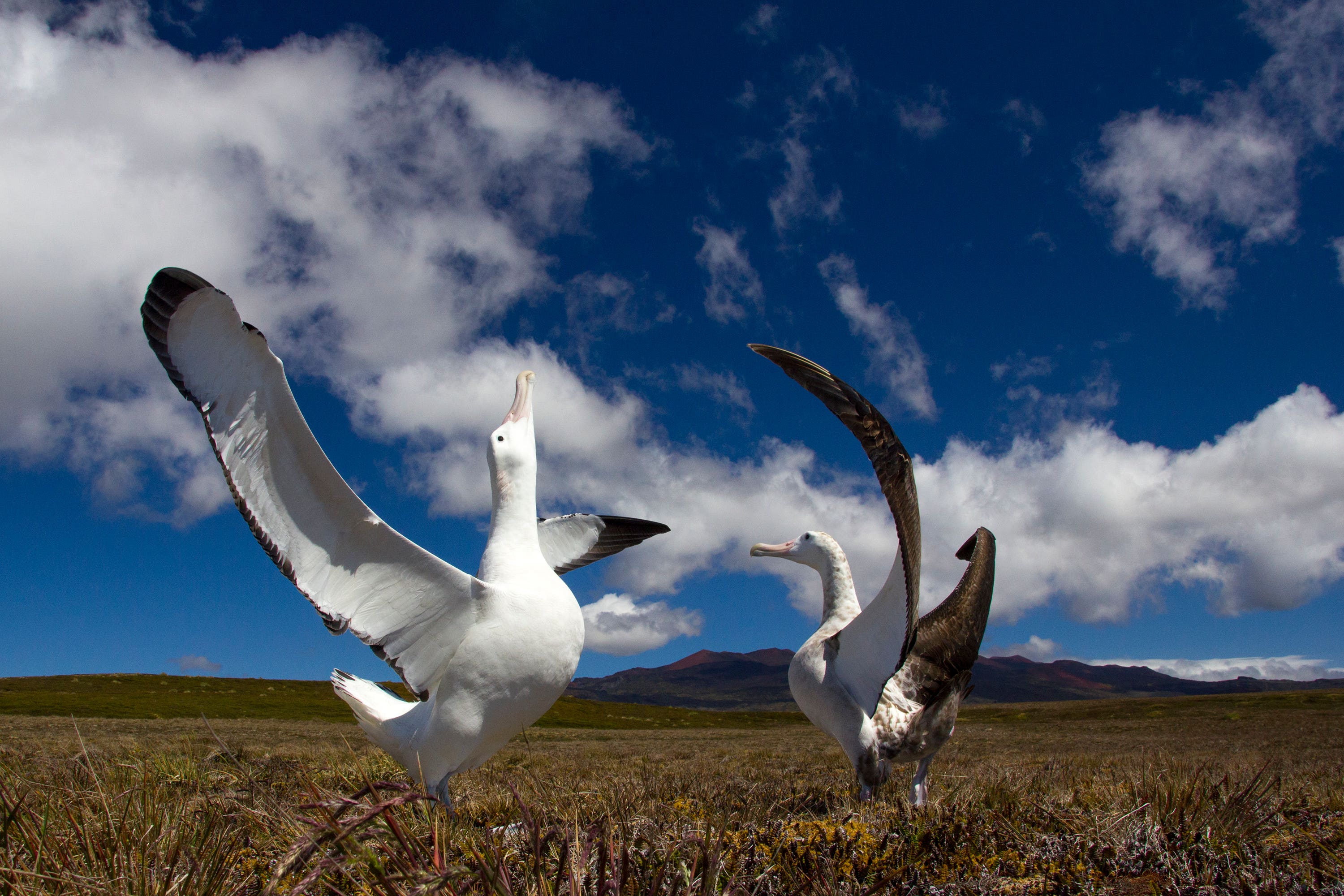Call to support island mice eradication bid after latest attack on albatross
Non-native house mice are eating seabirds alive on South Africa’s remote Marion Island.

Conservationists are calling for support to eradicate mice from a remote island, after the latest gruesome discovery of an albatross chick eaten by the non-native rodents.
Researchers working on Marion Island, South Africa’s remote sub-Antarctic territory, recently discovered a severely wounded wandering albatross chick, which died the next day from the injuries to its neck.
The wounds on the four-month-old bird were characteristic of those inflicted by house mice, accidentally introduced by sealers in the 1800s and now eating the island’s ground-nesting seabirds alive, conservationists said.
It shows the “imperative” to push ahead with an ambitious programme to eradicate mice from the Southern Ocean island to protect its seabirds, they said.
Marion Island is home to a quarter of the world’s wandering albatrosses and is a critical breeding site for the threatened birds, which breed only once every two years to raise a single chick.
House mice, which are omnivorous, have been recorded preying on seabird chicks and adults, and now mouse attacks on adult wandering albatrosses have been spreading across the island this winter, experts warned.
And climate change is helping the inadvertent invaders as the island becomes warmer and drier, the mouse breeding season lengthens and their summer populations increase.
Cases of birds being eaten alive have increased in winter when mice have fewer alternative foods such as seeds and bugs, they said.
Without action to tackle the mouse problem, experts predict the rodents may cause the local extinction of 19 of Marion Island’s 29 bird species, including the wandering albatross, which is listed as vulnerable to extinction on the International Union for Conservation of Nature (IUCN) Red List.
There is hope for the island’s seabirds, however, with an ambitious “Mouse-Free Marion” project that aims to clear mice from 30,000 hectares (74,000 acres) of land, which the scheme’s backers say would be the biggest island mouse eradication effort of its kind to date.
The project by South African government’s Department of Forestry, Fisheries and the Environment (DFFE) and BirdLife South Africa (BLSA) will involve helicopters spreading poison bait across the whole island to ensure every mouse territory is targeted.
Mouse-Free Marion project manager Dr Anton Wolfaardt said the images captured by researchers of the wounded albatross chick “offer a stark yet vital reminder of what’s at stake”.
“The threat posed by mice is clear, the imperative to address it from a conservation perspective undeniable.
“Action is also necessary on animal welfare grounds, to stop the suffering and deaths of numerous defenceless seabirds, including this wandering albatross chick, caused by mice,” he said.
“We need to clear 30,000 hectares – the equivalent of over 42,000 football pitches – of mice, and we need your help to do it.
“If you want to support either our ‘sponsor-a-hectare’ campaign or if you are able to provide more generous funding towards our work, we can progress what we are doing faster and stop these attacks on seabirds.”
– To find out more about the project, people can visit: www.mousefreemarion.org
Bookmark popover
Removed from bookmarks